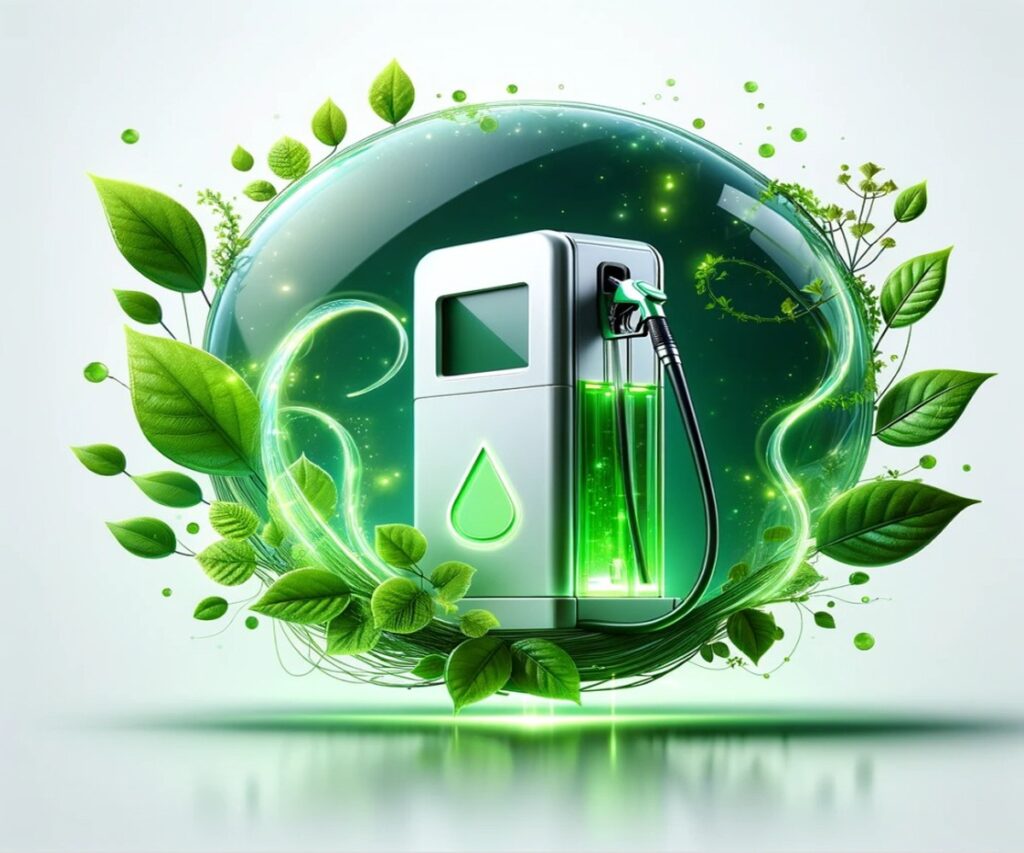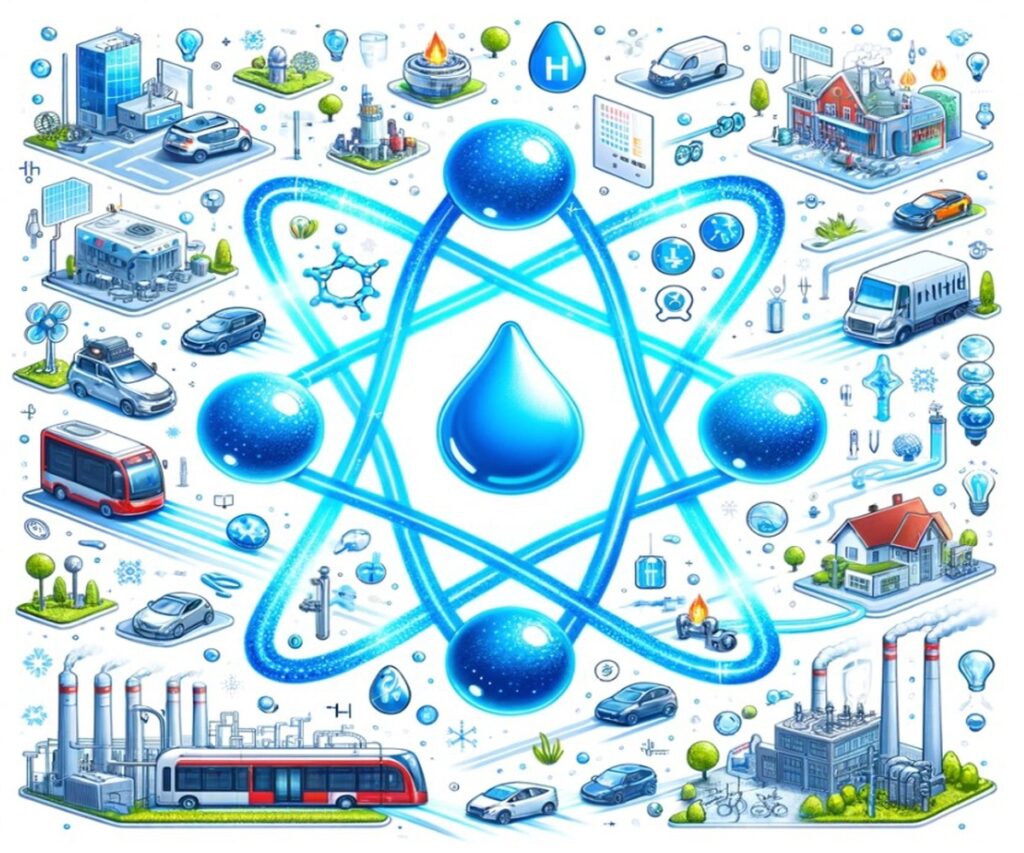Introduction
As the world transitions toward a greener and more sustainable future, the need for alternative energy sources has become paramount. e-Fuel, a revolutionary synthetic fuel, has emerged as a promising solution to address the environmental challenges posed by traditional fossil fuels.
This innovative energy source offers a unique opportunity to reduce our carbon footprint while maintaining compatibility with existing vehicle infrastructure. It has garnered significant interest and research momentum in various countries and companies, with its potential to revolutionize the transportation industry and pave the way for a more sustainable future.
What is e-Fuel?
e-Fuel, also known as electrofuel or synthetic fuel, is a carbon-neutral liquid or gaseous fuel produced through a process that combines renewable energy, captured carbon dioxide, and hydrogen. This cutting-edge technology utilizes carbon capture, utilization, and storage (CCUS) techniques to convert carbon dioxide emissions into a sustainable energy source. By harnessing the power of renewable energy sources, such as wind or solar, e-Fuel provides a viable alternative to fossil fuels for vehicle transportation. Unlike traditional fossil fuels, it demonstrates a high complete combustion rate, contributing to its carbon neutrality and environmental sustainability.

The Manufacturing Process of e-Fuel
The production involves a multi-step process that integrates various advanced technologies. First, green hydrogen is generated through water electrolysis, a process that uses renewable energy to split water molecules into hydrogen and oxygen. This hydrogen is then combined with captured carbon dioxide through a catalytic process known as the Fischer-Tropsch synthesis. During this reaction, the hydrogen and carbon dioxide molecules are chemically transformed into liquid or gaseous hydrocarbons, which can be further refined into e-Fuel suitable for use in vehicles and other applications.
https://efuel-today.com/en/production-process-of-e-fuels/
Advantages for Vehicle Energy
1. Compatibility with Existing Vehicle Infrastructure One of the most significant advantages of e-Fuel is its compatibility with existing internal combustion engine (ICE) vehicles. Unlike electric vehicles, which require substantial infrastructure changes and the development of new charging networks, it can be seamlessly integrated into the current vehicle ecosystem. This compatibility eliminates the need for costly vehicle replacements or modifications, making the transition to sustainable energy more accessible and cost-effective. By leveraging the existing infrastructure for production, storage, and distribution of fuel, it offers a smooth and gradual path toward a more sustainable transportation system.
2. Reduced Carbon Footprint and Environmental Impact e-Fuel offers a remarkable reduction in carbon emissions compared to traditional fossil fuels. While the combustion of e-Fuel does release carbon dioxide, the carbon cycle is virtually closed due to the utilization of captured carbon dioxide during the manufacturing process. This innovative approach significantly reduces the overall carbon footprint of vehicle transportation, contributing to a more sustainable future.
3. Energy Security and Stability Unlike fossil fuels, which are subject to geopolitical tensions, supply disruptions, and price fluctuations, eFuel production relies on renewable energy sources and captured carbon dioxide. This inherent stability ensures a consistent and reliable supply of energy, reducing dependence on finite resources and providing greater energy security for nations and industries alike. By harnessing locally available renewable energy sources, countries can reduce their reliance on imported fossil fuels, enhancing their energy independence and resilience.
4. Complementing Electric Vehicles While electric vehicles (EVs) have gained significant traction in recent years, they face challenges such as limited range, charging infrastructure limitations, and battery production concerns. eFuel presents a complementary solution, addressing the limitations of EVs and providing a sustainable energy source for long-distance travel or applications where electrification is not feasible. By combining the strengths of both technologies, a more comprehensive and resilient transportation system can be achieved. It can serve as a bridging solution, facilitating a gradual transition to a fully sustainable transport ecosystem without immediate infrastructure overhaul or substantial investment in new vehicle fleets.
Challenges and Future Potential
While e-Fuel holds immense promise, there are still challenges to overcome before large-scale commercialization. The current manufacturing processes require significant amounts of energy, making eFuel production relatively expensive compared to traditional fossil fuels. However, ongoing research and development efforts are focused on optimizing the production process, improving energy efficiency, and reducing costs. As technology advances and economies of scale are achieved, the cost of eFuel production is expected to decrease, enhancing its competitiveness in the market.
Furthermore, the scalability of eFuel production remains a key consideration. To meet the growing demand for sustainable energy solutions, large-scale production facilities and a robust supply chain for renewable energy, captured carbon dioxide, and hydrogen will be required. Collaboration between governments, industries, and research institutions will be crucial in addressing these challenges and facilitating the widespread adoption of e-Fuel.
As the demand for sustainable energy solutions continues to grow, more countries and companies are investing in production. With increased adoption and economies of scale, e-Fuel is expected to become increasingly competitive and commercially viable, paving the way for a greener and more sustainable transportation system.
The global shift towards decarbonization and the urgency to combat climate change are likely to drive further investment and innovation in eFuel technology, positioning it as a key player in the future of sustainable mobility.
Conclusion
This e-Fuel offers a transformative solution in the pursuit of sustainable vehicle energy. By harnessing renewable energy sources and captured carbon dioxide, e-Fuel provides a carbon-neutral alternative to traditional fossil fuels. Its compatibility with existing vehicle infrastructure, reduced environmental impact, and energy security make it an appealing choice for the transitional period towards a fully sustainable transportation ecosystem.
The widespread adoption of this innovative fuel will necessitate collaborative efforts from governments, industries, and research institutions. By investing in research and development, optimizing production processes, and establishing a robust supply chain, it can become a commercially viable and environmentally friendly option for the transportation sector.
As the world continues to grapple with the challenges of climate change and environmental degradation, this fuel emerges as a promising solution, offering a bridge between conventional internal combustion engines and a fully sustainable transportation system.
※ This report has been compiled for the purpose of providing general information. It is based on data gathered by CHEMiFORGE. Should you have any inquiries or need to make decisions based on this report, it is advisable to consult with a CHEMiFORGE.


